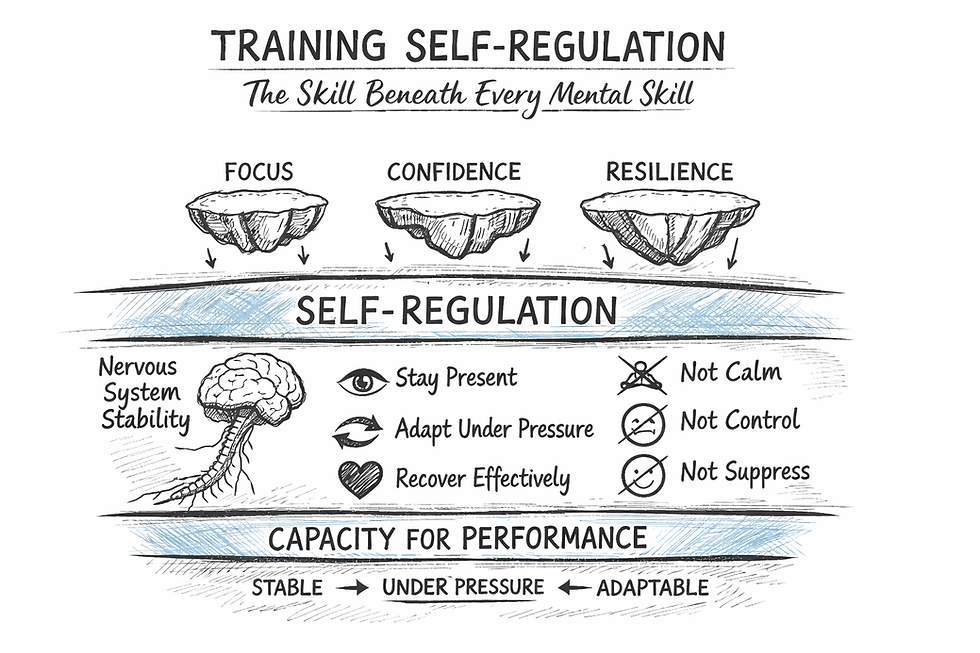Bounce Back Like a Champion: How to Recover Faster From Slips in Sports
- Kate Allgood
- May 6, 2024
- 3 min read
We've all been there. You're laser-focused, everything's clicking, and then...bam! A sudden lapse throws you off. Maybe your focus wavered for a split second, or a surge of adrenaline disrupted your rhythm. These aren't full-blown mistakes, but rather slips - brief moments where your automatic responses falter.
Why "Slips" vs. "Mistakes"? Mistakes often imply conscious choices. In sports, slips are more about automatic tendencies going awry. Maybe a distracting thought momentarily hijacked your focus, or fatigue caused a lapse in technique.
The good news? You can train your brain to recover from slips faster.
Here are 4 tips to help you become a mental rebound artist:
1. Reframe Your Thinking:
Our brains love negativity bias. A slip gets magnified, and suddenly, it feels catastrophic. Instead, challenge those thoughts. Was it a truly game-changing error, or a minor blip? Reframe it as a learning opportunity: "That throw wasn't perfect, but I can adjust my grip for the next one."
2. Focus on What You Can Control:
Dwelling on the past is a mental dead end. Shift your focus to the present moment and what you can actually control. Can you hustle harder on defense? Can you improve your footwork for the next shot? Focus on these actionable elements to regain a sense of agency.

3. Take a Deep Breath (or Two):
Feeling flustered? Take a few deep breaths. Deep breathing activates the body's relaxation response, calming your nervous system and improving focus. It can help you clear your head and get back in the game.
4. Visualize Success:
Visualization is a powerful mental tool. In the moments following a slip, take a brief mental time-out (if you can). Close your eyes and vividly imagine yourself executing the play flawlessly. See yourself performing the mechanics perfectly, feeling confident and in control. This process reinforces the correct neural pathways in your brain, making it more likely you'll perform the action flawlessly next time.
Remember: Champions aren't defined by their slips, but by their ability to bounce back stronger. By incorporating these mental recovery strategies into your routine, you'll be well on your way to becoming a more resilient and successful athlete.
Bonus Tip: Practice these techniques in training! Simulate pressure situations and deliberately create situations where your automatic tendencies might get disrupted. This allows you to develop your mental coping mechanisms in a safe environment, making them more readily available during competition.
Mental performance training can be a game-changer. If you're looking for additional support in mastering the mental side of your sport, consider reaching out to learn more about how our programs can help..
To your success,
Kate
About: Kate Allgood is educated in the field of applied sport psychology. She holds two Masters degrees in psychology where she graduated with distinction. After a very successful hockey career, she has spent the past 14 years working one on one with high school, college, Olympic, and professional athletes to help them with their mindset, mental performance and mental skills training. Kate has also been a consultant for professional teams, including the Anaheim Ducks primary minor league affiliate the San Diego Gulls, to help the team and players develop their mental game. It is important to note that while Kate has graduate school training in applied sport psychology and general psychology, she does not diagnose or treat clinical disorders, and is not a licensed psychologist.
**The information provided is not to dispense medical advice or prescribe the use of any technique, either directly or indirectly, as a form of treatment for physical, emotional, or medical problems, without the advice of a physician. The information provided is only to offer information of a general nature to help you in your quest for high performance. If you know or suspect you have a health problem, it is recommended you seek your physician's advice.



Comments